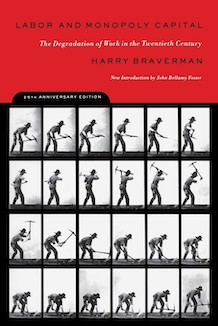I know that I am not alone in saying that I am the most politically disoriented and unorganized I have been in my life. While I have political tastes and desires, I have no sense of a future, let alone a positive one, and little sense of where the levers of power are. There are many hopeful signs and valiant struggles, but still, the enormity of capitalism’s violence is far outstripping the scale of our efforts to confront it.
The reflexive answers to this situation tend toward either doomerism or boosterism. It is an obvious error to give in to panic and catastrophism, but I believe we are equally in error to engage in boosterism: the practice of claiming every loss and setback as some kind of secret victory. And from Bernie Sanders’ second unsuccessful presidential campaign, to soaring police budgets despite widespread Black Lives Matter protests, to the alienation and illness of the COVID-19 pandemic, there has been no shortage of losses and setbacks over the past few years.
Activists often contend that we should speak truth to power; I am currently preoccupied with the task of speaking truth about ourselves, our movements, the conditions we organize in, and what it will truly take to win. So, what is to be done? I don’t know, but I have found the following texts useful in guiding my thinking in the direction of an answer and then, hopefully, toward political orientation, organization, and action.
The majority of these texts are based in the Marxist tradition, which I have found invaluable as a tool in disciplining my mind to face a disorienting and distressing world with unflinching honesty. Capitalism is an incredibly obfuscating and mystifying political system; Marxism is a method for parsing it.

The Eighteenth Brumaire of Louis Bonaparte (1852)
At the risk of sounding obnoxious, I would say that this is my favourite Karl Marx – easy to read, funny, literary, and incisive. The Eighteenth Brumaire is a journalistic account of Louis-Napoléon Bonaparte’s autocoup of 1851, but it has been most useful for me as an example of how Marxists should analyze current events. We are not simply identifying problems in society and complaining about them; we are using the method of historical materialism to understand the concrete formations and contradictions of a specific moment in time. Doing this well requires a certain openness to both the specificity of the historical moment and the possibility of sudden change, and Marx demonstrates this approach with style.

Labor and Monopoly Capital (1974)
Harry Braverman is the first researcher since Marx to take seriously the labour process itself as a site of class conflict. In the postwar period, it was common to understand the control and coordination of work as a technical or bureaucratic exercise; Braverman demonstrated that automation and “scientific management” were instead a way of deskilling workers. Contrary to contemporary leftist memes that there is “no such thing as unskilled labour,” Braverman argues that skilled labour does exist, but that capitalists use technology and management techniques to strip away the “skilled” parts of workers’ jobs, separating the conception and arrangement of work from its execution. For example, instead of an engineer designing a small electric motor, the worker would input desired performance data into a computerized program and inspect the results. Unskilled labour is real, but manufactured deliberately to suppress wages, foster alienation, and make employment more precarious. Crucially, this insight into the way labour processes are reshaped is not restricted to traditional “manual” labour; his analysis includes the proletarianization of professional and white-collar workers, making the text an invaluable foundation for anyone involved in the labour movement.

Marx, Women, and Capitalist Social Reproduction (2019)
To my shame, I spent most of my twenties dismissing feminist theory out of hand. I was frustrated by liberal feminism’s preoccupation with women’s inclusion in institutions and power structures I believed were immoral, and I painted with a very large brush. Fortunately, owing to the efforts of some very patient comrades and my remarkable feminist shop steward, I was acquainted with Marxist feminism as both an alternative to liberal feminism and as a way of analyzing the production and reproduction of life itself. Martha E. Giménez is a rigorous and unorthodox thinker who is critical of ideas commonly known to contemporary feminists like intersectionality and identity politics, but her criticism is based on a rich and productive engagement with those concepts. I think even readers who end up disagreeing with her critiques will find that the effort has produced new understanding and insight. I admire Giménez for her unwillingness to handwave away thorny particulars, even if I am not always content with the answers.
“Capitalism and mental health” & “A theory of mental health and monopoly capitalism” (2019, 2020)
By bringing together two distinct veins of Marxist thought, David Matthews’s articles from the Monthly Review show both how alienation is created by capitalist society and its corresponding psychological toll. One vein the author taps is Paul Baran and Paul Sweezy’s Monopoly Capital, which is one of the most influential works of Marxist political economy produced in North America. Published in 1966, it remains deeply prescient on issues of financial speculation, monopoly, inequality, economic stagnation, and imperialism. The other is the work of Erich Fromm, who argued that poor mental health arises from capitalist society, the organization of which hinders the fulfillment of our uniquely human desires. Both articles are excellent on their own, and they are also a great jumping-off point for further reading on Marxist political economy or political psychology.

Space Crone (2023)
I am keenly looking forward to this new collection of Ursula K. Le Guin’s writing on feminism and gender. While Le Guin isn’t a Marxist, she embodies the best aspects of its approach – lucidity, invention, adamance. It has rarely been more necessary that we engage with feminist writing that takes seriously the category of “woman” while emphatically rejecting reactionary bio-essentialism. Le Guin is committed to an ecological and multi-generational feminist consciousness; she is equally committed to rejecting tired gender-essentialist tropes about women’s inherent capacity for wisdom, divinity, and nurturing. The result is a feminist politic that takes women’s intellectual capacity and engagement with other women’s ideas seriously; I can’t wait to do the same with this text.

Fire Alarm (2006)
Michael Löwy’s close reading of Walter Benjamin’s “Theses on the Philosophy of History” is so good that I almost always recommend it as a companion to the original essay. Benjamin makes several key theoretical insights through his critique of progress and understanding of catastrophe as the status quo. Löwy’s reading enriches these insights by forcing you to think about concepts previously taken for granted – time, historical materialism, messianism, progress, history – in a radically different and generative way. I return to this book often, particularly the conclusion. In an enigmatic paragraph, Benjamin reminds us of the dangers of looking into the future: if you think you know precisely what will happen, you are cursed to wait passively for the inevitable. Instead, Benjamin and Löwy both invite us to think of the future as the “small gateway in time” through which deliverance may enter, if we work to bring it about.
It is my belief that honesty – about ourselves, our opponents, our situation – is the necessary precondition for political action, as without it we will become disillusioned and ineffective. In the coming years, I am endeavouring to face the world as it is, without consolation or despair.


_1200_675_s_c1_c_t.png)



_780_520_90_s_c1.jpg)
